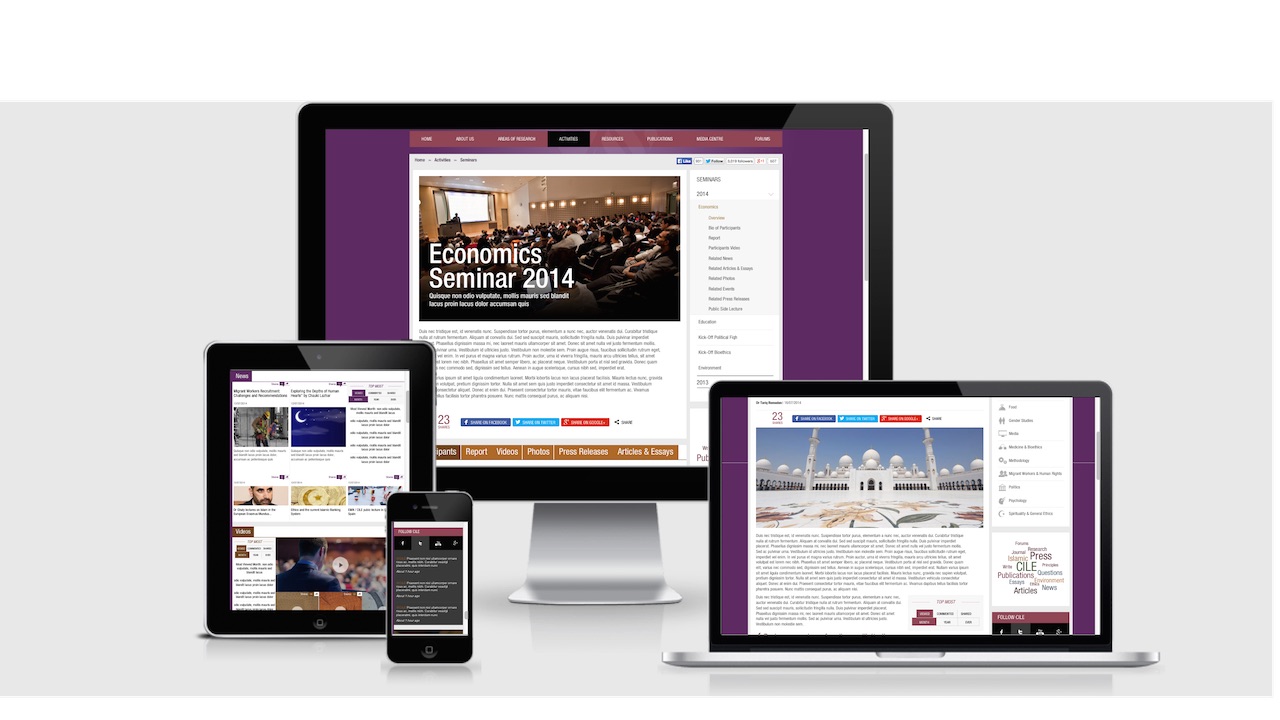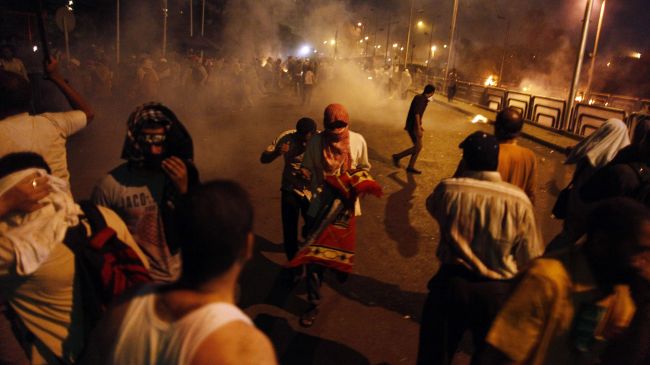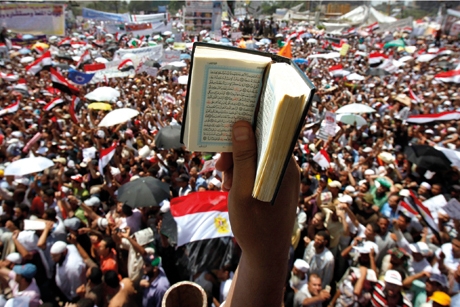The Mideast paradox unfoldsEGYPT FACES A SERIOUS and complex situation. Large crowds have taken to the streets and violence has broken out again. Clashes between opponents and supporters of President Mohammed Morsi have left several dead and hundreds more injured.
It should have been different. Egypt should have been moving toward democracy and political stability, but the two years that have passed since January 25 2011—the date the protests against Hosni Mubarak started—have witnessed increasing turmoil and confusion. Islamists and secularists at each others’ throats, the emergence of the literalist Salafis, the shadowy role of the Armed Forces in addition to direct and indirect foreign involvement, have combined to block the country’s attempts at normalization and the effort to complete the revolutionary cycle. In fact, never have democracy and stability seemed quite so far off as they do today. Even tracking rapidly evolving events and shifting strategic alliances has become an ongoing challenge.
But by closely examining several key factors, we can make educated guesses about short- and long-term developments. Clearly, certain forces–particularly the Salafis by their actions before and after the elections as well as during the debate on the constitution–are doing everything in their power to divert the country from democracy. Elements of the former regime, not to mention the Armed Forces and the secularists working from behind the scenes, are increasing tensions and undercutting the new government headed by former Muslim Brotherhood official Mohammed Morsi. Their aim is to bring the political transition to a halt. President Morsi, when he mentioned pressure tactics, plots and manipulation in his last speech, was accurately describing the tangible reality of Egyptian public affairs. Some of his opponents are using manipulation and destabilization tactics; others, populism and mass agitation.
But that would not be reason enough to overlook some disturbing facts with possible serious consequences for the nation’s future. When, in August 2012 following violent incidents in the Sinai, Mohammed Morsi dismissed the head of Egypt’s intelligence services, followed by the president of the SCAF, Field Marshall Tantawi, and Chief of General Staff, General Sami Anan, a delighted population interpreted the president’s move as an “anti-military counter-coup.” The new president—so the story went—had courageously pushed back against the once-powerful Egyptian army, and as a result enjoyed several weeks of significant symbolic popular support: an over-optimistic interpretation not supported by facts. In fact, Mr. Morsi moved not against the armed forces but in concert with its most influential leaders, the idea being to give the military a new role at the heart of a state now governed by civilians. The Morsi government, mindful of its legitimacy, as well as internal and international security, had no alternative: it had to come to an understanding with the military leadership, and to placate the American administration that has steadfastly supported that leadership for decades. This support has not lessened in recent months. Still, it was startling to see the United States so readily accept the good offices of the Morsi government during Israel’s latest attack on Gaza. And equally startling to see the Netahyahu government agree so readily to allow—while bombs were falling—Egypt’s Islamist interior minister (a member of the Muslim Brotherhood, organizationally close to the very people whose leaders were being summarily executed) to enter Gaza! Surprising, as well, was the presence in Egypt of an Israeli delegation to sign the cease-fire agreement. The Morsi government had scored a second symbolic victory: yesterday, against the armed forces; today, against Israel, with all the domestic and international recognition that implies. Yet let us not rush to conclusions.
Strengthened by his newfound legitimacy, President Morsi attempted to speed up the pace in his quest for stability at home. He knew that opposition forces were active, and that the judiciary was apparently preparing to call for new presidential elections. But the decree granting him temporary discretionary powers (which he was finally forced to annul on December 9 2012) and the adoption of a new constitution to be submitted to a referendum enraged the opposition and brought large numbers of people into the streets. Would Mohammed Morsi have gone as far as he did had he not felt that he was protected? Or did he already know it? Scrutiny of events, and of the text of the draft constitution, give a clearer view of who is protecting the current government, and who that government is pledged to protect in future. While tens of thousands of demonstrators massed in front of the presidential palace, the Republican Guard and units of the armed forces were drawn up to protect both the building and those inside. The commander of the armed forces appealed for “calm” and called for dialogue between the administration and the opposition to avoid “a catastrophe.” Rumors of a possible coup were quickly denied by the military, but the mere reference to such an eventuality was a message to the opposition, a warning not to go too far. The draft constitution is even clearer on the role and prerogatives of the armed forces. It establishes a fifteen-member National Security Council, confirms the military’s administrative autonomy, its ultimate responsibility for such vital measures as declaring war, and the competence of military courts to judge civilians (in cases related to military matters): powers that give the armed forces a determinant role in Egypt’s new political configuration (even more than under Mubarak’s regime).
In truth, the configuration is hardly a new one; and now it has insinuated itself into the very process of democratization. The United States, Europe and Israel can only breath a sigh of relief: political power has remained firmly in the hands of their long-time partners. Furthermore, the assumption of power by the Islamists may well offer them even more opportunities than those available under the former dictatorship. While little fault can be found with the pragmatism demonstrated by the Islamists in recent years, their abandonment of some principles of political ethics has been eye opening. The latent power of the Islamist movements as an opposition force has turned to weakness on taking power: their obsession with recognition and national and international credibility has forced them to make multiple compromises and trapped them in contradictions that have sapped their strength. The West, like Israel, has apparently realized that it can use the Islamists in power to their advantage, a conclusion recent events seem to bear out.
In Turkey, outside of a few bold symbolic steps taken against Israel, the formation of an Islamist government has had virtually no impact on the balance of political power in the Middle East. Quite the contrary: Turkey has quickly and with a high degree of efficiency integrated the free-market economy and adopted Western security policies as its own. At the same time, the Islamic Republic of Iran has become the latest useful “threat” brandished to justify a policy of interference in Iraq, to shift the center of gravity of risk to the Middle-East (from the Israel-Palestine conflict to Tehran) and to magnify the Sunni-Shia split. A policy of fear-mongering and sanctions has successfully isolated Iran, as it has the Islamo-militarist regime of Sudan, where the separation into separate northern and southern entities is an old Western dream come true, while concealing the true impact of Israel’s African policy. The list grows longer: the capture of power in Gaza by Hamas has undermined both unified resistance and support from outside backers. Israel, playing on Palestinian divisions and the Islamist danger to pursue its strategy of colonization, has been the major beneficiary. Today the pragmatism of the Islamists has drawn them, in an almost identical manner, into compromises, contradictions and loss of credibility in Tunisia and Morocco, as well as in the corridors of power in Jordan and Yemen, and at the heart of the Syrian resistance.
The paradox is striking: yesterday’s dangerous and strong opponents to power may well become the objective and weak allies, while in power, of today’s strategic and economic policies. The Islamists might be used to act as protectors of Western and Israeli interests. Weakened by authority and wielding objectively limited power, they find themselves facing political forces (Salafis or secularists) and institutions (financial and/or military) that undermine their potential competence to reform their respective countries and societies. The outlook could not be more serious: not only has there not been an Arab spring, not only has the Middle East demonstrated no awareness of transnational political imperatives, but the exact opposite has occurred. Nationalist and sectarian ideologies are handing countries over to foreign powers and interests.
The West can be blamed for employing Machiavellian tactics in pursuit of its goals, but what else did we expect? Israel aside, the United States has no friends, only interests. Israel’s strength is the weakness of the Arabs—atheists, Christians and Muslims, Sunnis and Shiites, secularists and Islamists combined. The key question is one of political conscience, the obsession with power that reduces governance to a struggle among individual interests, outsized egos and narrow, if not entirely empty ideologies. The Arab world needs visionaries, leaders dedicated to ideas and ideals, politicians motivated by values, attentive to unity and to diversity. The Arab world has proven to the world at large that it could say “no;” the time has come for it to demonstrate that it knows how to say “for what?” and “how?” with dignity.
Source: http://gulfnews.com/opinions/columnists/the-mideast-paradox-unfolds-1.1117318










The Arab world has proven to the world at large that it could say “no;”
So have the Kurds and Berbers: « No » to being part of a submissive Arab world. The world at large won’t listen to Arabs until they learn to listen to others.
Les amazighs non pas les berbers ( car je trouve le mot berbere un peu sauvage). Les amazighs du Maroc presicemment sont liés aux arabes par l’islam. On cherche a ce que les pays renforcent leurs liens et que leurs populations soient attachées les uns aux autres. On dira plutot « NoN » à la division.
Exactement. Les Imazighen (mieux que « amazighs »;) sont associé avec les Arabes et les autres musulmans par l’islam, et non par l’arabisme. Berbères (what’s in a name…) et les Arabes sont des frères en Islam et partagent certainement une histoire. Le problème est que certains Arabes essayent de coloniser les Berbères et de prétendre que la civilisation arabe est la seule civilisation légitime en Afrique du Nord.
Salam alikum. I am Nadir from Chaouiya, Algeria. I am a descendant of Al Kahena, Massinsa, Yugerta, legitimate successors of Nomedia. The Amazigh language must be instituted as official language in all Amazigh countries. There is nothing wrong with the presence of Arabic as well since it is the language of the Qur’an. There is nothing wrong with the presence of Arabs on the land of Berber people. This is not new for the hospitality of Amazigh people. But I want to tell you a few points about allegations saying Amazigh language will enhance division and split up the unity as Arabs say. Arabs should know that it is Arab pulse for the lust of power and oppression which enhances division and fragmentation. Concerning religions, Berbers adhered to Islam after understanding the principles of tolerant Islam which calls for justice and equality not tyranny, oppression and injustice which cause destruction and backwardness. Therefore, the Amazigh identity and language must be restored, drive forward the Amazigh Islamic Umma in the road of progress and development. Just an observation, Islam doesn’t mean Arabs. The principles of Arab nationalism are taken from Arab nature which lost Jerusalem, we must get rid of it without racism or hatreds. Arabs who live in Amazigh Maghreb should think well and say the truth though it is sour, stop lying to themselves and shamefully distorting history.
Tariq Ramadan with his articles sows confusion. He points fingers at and blames everything and everyone and offers no solutions. Oh yes, one: we need ‘leaders’. Leaders like Tariq Ramadan?
Mister Ramadan, why didn’t you post my message? I have some serious concerns about your leadership. I think it’s problematic if our leaders are not clear and one day cover in a moderate appearance, one day in a conservative appearance and are two-faced.
Many young muslims listen to you, you must be aware of that and offer guidnes, not confusion.
I completely agree that this article is disappointing in the sense that there was no solution offered by Mr. Ramathan whom I had great respect for his opinion concerning the Islamic World and the Arab World in particular. Revolution is a process not an electrical button. Things will take time to change, but we have to be patient and resolute in the face of interference and sabotage from within and outside.
slaaam! happy new year tariq ramadan!
Nice! Thank you for sharing…so true the Arab world needs visionaries who will need to establish trust with the masses after many years of abuse of power.
I felt like you were being too skeptical and critical given that the country just went through a major revolution.
Plus, your major criticism of the Islamists being pragmatic could also be viewed as a strength in that they are flexible in their position to compromise with opposing forces, like the military, and work with all parties (U.S. and Israel) to secure the nationès interests — you view this as falling short on a moral ideal…but may be thatès why religion should stay away from power, at best remain a guideline in the position of an opposition.
I think Mr Ramadan does a great job by analysing the situation in the arab countries. Mr Ramadan offers here a new facet of the situation which is not very positive but realistic. So now I’m talking to the persons who reproached to mr Tarik not to offer any solutions: FIND A SOLUTION YOURSELVES, DON’T YOU HAVE A BRAIN?
And I think that the persons talking about a separation between amazigh and arabs are very narrow minded and they are helping the westerns to create more division between muslims in order to destroy them.
may god guide all the muslims to the straight way .
You are missing the point, Imazighen are not fighting against arabs, they are fighting for their rights.
http://www.youtube.com/watch?v=_XnSxWRVjaM
Just wanted to share. Since you are arab, you will understand this:
http://tariqramadan.com/spip.php?page=forum&id_article=12656&id_forum=68585
Oeps posted the wrong link, wanted to show you a youtube film but now I’ve lost it. Anyway, you got the message.
Peace to all
The muslim brotherhood are messing up, you are being too soft on them.
There already is talk about Egypt may be collapsing due to this contious turmoil. Will that be the legacy of the Ikhwan???